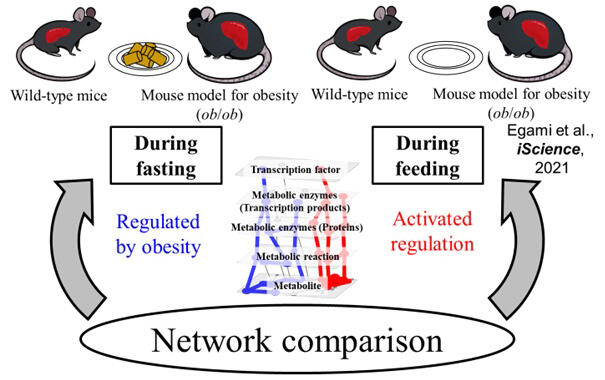Metabolism is set of reactions that converts nutrients from the diet into energy to sustain an organism's activities, and the liver is primarily responsible for this action. When obesity causes loss of normal metabolic function and metabolic abnormalities, lifestyle-related diseases such as diabetes may develop. In previous studies clarifying the mechanism behind this metabolic abnormality, laboratory mice were subjected to fasting for several hours to exclude the effects of the time lag between measurement and final feeding, and metabolic abnormalities associated with obesity during fasting were analyzed.
A research group led by Project Research Associate Yunfan Bai and Professor Shinya Kuroda of the Department of Computational Biology and Medical Sciences at the Graduate School of Frontier Sciences at the University of Tokyo has established a comprehensive metabolic network spanning different layers of proteins and metabolites to clarify metabolic abnormalities associated with obesity. This study comprehensively measured cellular constituent molecules in the livers of wild-type and obese mouse models during feeding under free-feeding conditions.
Comparing this with the fasting network created in a previous study revealed that metabolic control during feeding in the obese mouse model was different from that during fasting. Furthermore, in obesity, allosteric regulators, mainly metabolites, are abundant as molecules that vary between feeding and fasting and contribute to the pathophysiology of obesity. The results of this study suggest that liver abnormalities in mouse models of obesity during feeding and fasting are altered by changes in the metabolite-regulated environment. Comparison with the "trans-omic network," which regulates overall metabolism, is expected to help shed light on the mechanisms of metabolic abnormalities in obesity and research on preventing and treating metabolic diseases.
Comparison of obesity-associated metabolic disorder networks during feeding and fasting





